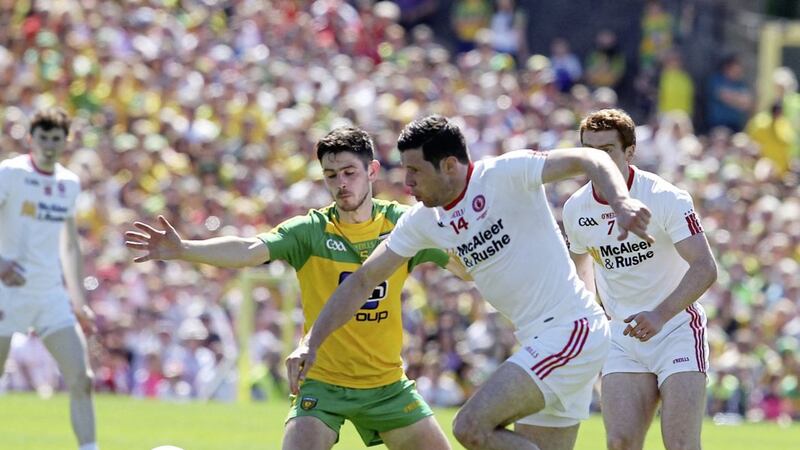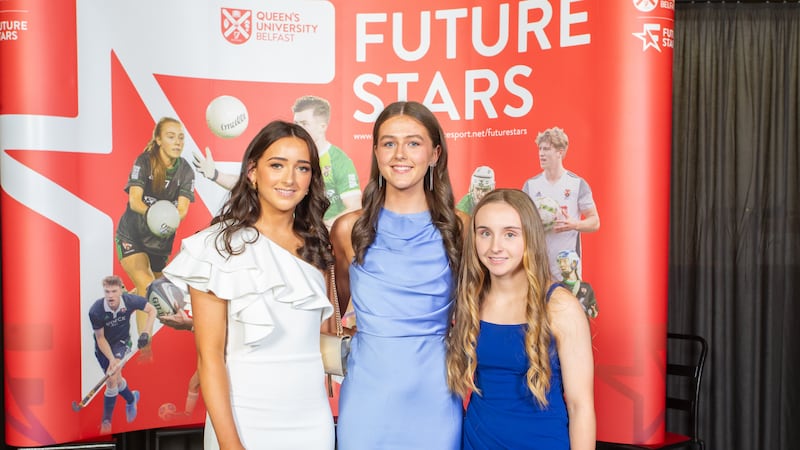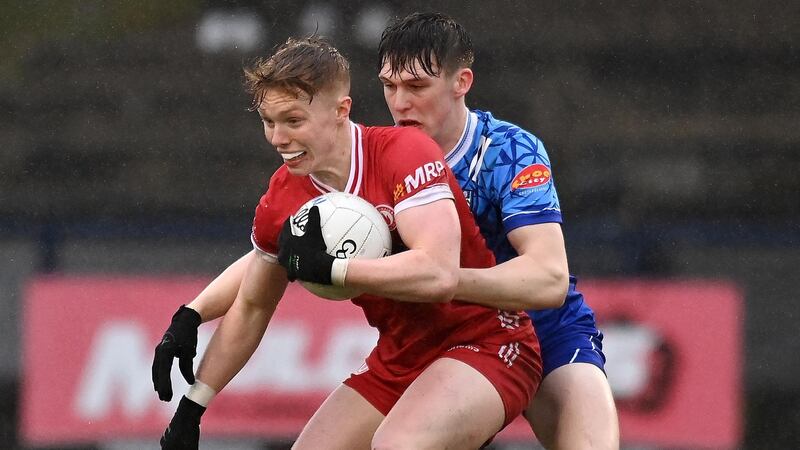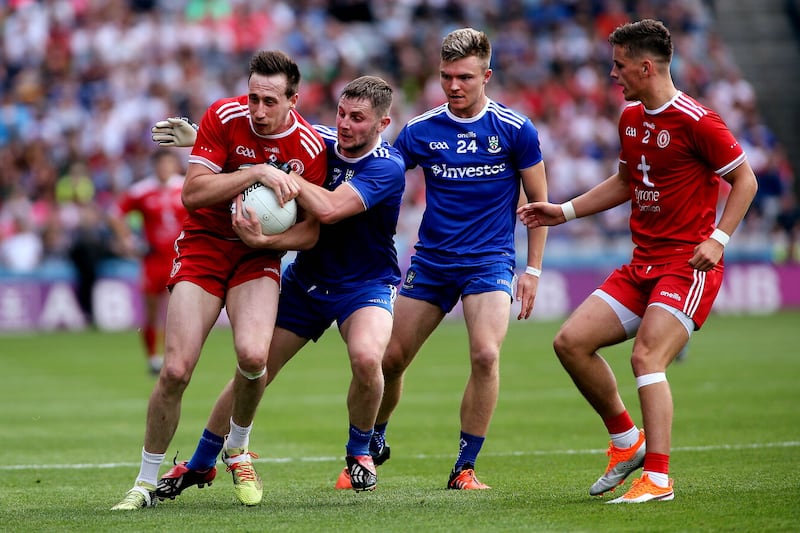SEAN CAVANAGH has warned two referees will be needed to officiate Gaelic football effectively after the introduction of the new ‘mark’ rule.
The Tyrone skipper has voiced his objection to the new law, which comes into effect from January 1 and will be awarded when a kick-out is caught beyond the 45m line with the catcher then given the option of taking a free-kick or playing on immediately.
Having played International Rules, Cavanagh is familiar with the mark but he predicts that the rule will take a lot of getting used to in Gaelic football, particularly for referees who already have to legislate over technical and physical fouls while adjudicating on three categories of cards and keep the time and the game moving.
“It’s difficult to officiate,” said Cavanagh, a three-time All-Ireland winner.
“Whenever someone half gets up and gets a touch on the ball, then it’s not a mark when you catch it, whenever you half catch the ball and it drops down and then you catch it some referees, even in International Rules, may call that a mark but some won’t call it a mark.
“To me it adds just another layer of complication. In my mind we need two referees because one isn’t enough to cope with everything that is going on in our game at this moment.”
Cavanagh has already voiced his opposition to the black card rule and says the mark - which was brought in to reward what GAA policy-makers viewed as the dying art of high fielding - will defeat its own purpose.
“It is just going to make players look to break the ball more and more and that is just going to make the game more scrappy,” he said.
“Sometimes, teams are just happy to give up possession and defend. But now if you are giving a free-kick, you will probably see less catches because the first thing that players will do is not catch the ball, but smash it.
“I am at a loss as to how exactly it is all going to play out but it does frighten me to a certain extent because it is a pretty significant change. And there may be as many negatives as there will be positives.”
Cavanagh is concerned that chaos will reign in early season games and adds that the mark will “change the face of our games next year”: “There’s going to be an awful lot of mistakes, there’s going to be an awful lot of mistakes made,” he warned.
“It probably took me four or five games playing International Rules even to understand how to make runs to get a mark, how to take a mark, what to do when you get a mark, so there's going to be an awful lot of that, an awful lot of learning on both sides for the referees and the players. That might ruin a few games earlier in the season, but whatever.”
Cavanagh has suggested that the GAA follow rugby’s lead and bring in a television match official (TMO): “Why not? I always wonder why not,” he said.
“You don't necessarily have to stop the game for a TMO job but, whenever there is that many cameras around, I don't understand why a referee can't be sitting in the stands and reviewing the off-the-ball stuff and even making a decision a minute or two after something has happened and being in the referee's ear on the pitch. Why not?
“If it is something that is not going to slow our game down, why not have it, a bit like the Hawkeye. Why not have it? Things like that make a lot more sense than bringing in a mark and tinkering with the rules of the game.”








